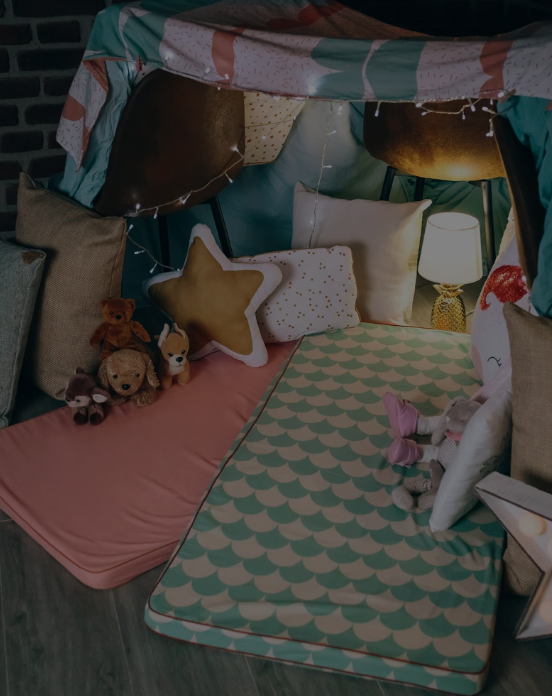Why We’ve Chosen a ‘No Sleep Overs’ Rule
Firstly, it grieves me that this even needs to be something that modern day parents consider. I have some fond memories of sleep overs as a child, but I also have some no so nice memories.
It was at sleep overs that I watched my first horror movies (anyone remember IT, The Blob, or Pet Cemetery?) that gave me nightmares for YEARS. It was at sleepovers that I experimented with alcohol and cigarettes. I was lucky to have not experienced any sexual abuse but so many are not this fortunate.
Here are some things we discussed when making the decision
safety concerns
We obviously can’t fully control who else will be in the home — older siblings, siblings friends, guests, or adults. Most child abuse cases (90%) happen in homes of friends/family — not strangers. A child is also more likely to be abused by another minor - a sibling, a cousin, the sibling of a friend, etc - than an adult.
We want to protect against:
Abuse and grooming risks
Lack of supervision late at night
Access to or inappropriate content. Parents often have different standards for movies, music, and internet access. Sleepovers can mean exposure to violent, sexualised, or inappropriate content
And less of a consideration (as our girls are still young) is also the exposure to drugs, alcohol.
personal boundaries and body autonomy
Nighttime can be when kids are most vulnerable, tired, and less likely to speak up. As much as we’re teaching our girls to advocate for themselves, they’re too young right now to:
Understand consent and personal boundaries
Recognise and avoid unsafe situations
This is just not something we want them to have to be thinking about as children!
emotional & sleep disruption
Often kids come home from sleepovers exhausted, overstimulated, or anxious. For sensitive children (neurodivergent, anxious, etc.), the change in environment can:
Trigger meltdowns, nightmares, or emotional dysregulation
Affect sleep, digestion, and behavior for days after
it’s so much easier to say: “it’s a family rule, not personal”
Our ‘no sleep overs’ rule is not because we are overprotective, but because we’re informed, cautious, and proactive about our children’s safety and development. Saying "no" to one friend’s home can create social tension — so a blanket “no sleepovers” rule helps eliminate the issue fairly across the board.
Many parents I’ve talked to feel sleep overs are a ‘right of passage’ and developmentally important. Some even say ‘how could you withhold that from your child?”.
What you could offer instead:
Late-over playdates or sleepunders (pick your child up just before all the other kids go to sleep)
Family-hosted movie nights
Camping in the lounge with friends (supervised and safe)
Sleepovers only with very close family or vetted long-time friends
.


